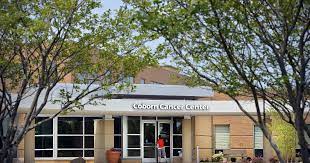the Rising Incidence of Colon Cancer
Uncovering the Statistics
Colon cancer, once predominantly associated with older adults, is now increasingly affecting individuals under the age of 50. Recent studies have revealed a concerning trend: a 2% annual increase in colon cancer rates among this younger population.
Exploring the Factors Behind the Rise
Lifestyle and Environmental Influences
Several factors contribute to the surge in colon cancer cases among younger individuals. Sedentary lifestyles, poor dietary habits, obesity, and environmental factors play significant roles in elevating the risk of developing this condition at a younger age.
Recognizing the Importance of Early Detection
Screening Guidelines
Traditionally, colon cancer screening has been recommended for individuals aged 50 and above. However, given the rising incidence among younger age groups, it is crucial to reassess screening guidelines and consider initiating screenings at an earlier age for those deemed at higher risk.
Understanding the Symptoms and Risk Factors
Identifying Red Flags
While colon cancer symptoms can vary, it’s essential to be aware of common signs such as changes in bowel habits, rectal bleeding, abdominal pain, and unexplained weight loss. Understanding personal and family medical histories is also vital in assessing individual risk factors.
The Role of Genetics and Hereditary Factors
Genetic Predisposition
Certain genetic conditions, such as Lynch syndrome and familial adenomatous polyposis (FAP), significantly increase the risk of developing colon cancer at a young age. Individuals with a family history of these conditions should undergo genetic testing and consider early screening.
Taking Preventive Measures
Lifestyle Modifications
Adopting a healthy lifestyle, including regular exercise, a balanced diet rich in fruits, vegetables, and fiber, and avoiding smoking and excessive alcohol consumption, can help reduce the risk of colon cancer at any age.
A Call to Action for Early Intervention
In conclusion, the rising incidence of colon cancer among individuals under 50 highlights the urgency of early detection and preventive measures. By raising awareness, advocating for improved screening protocols, and promoting healthy lifestyle choices, we can work towards reversing this alarming trend and ensuring better outcomes for future generations.




